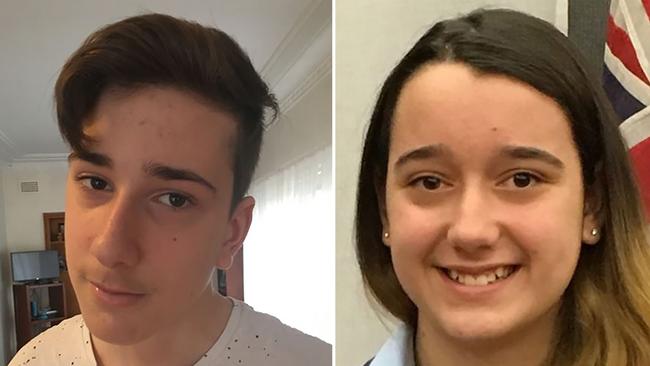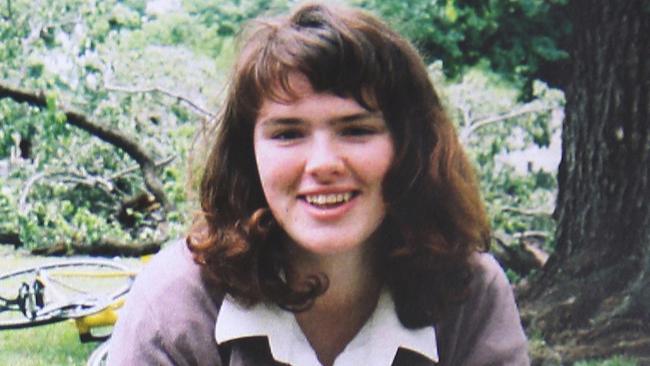The five questions we should stop asking women
IT wasn’t long after John Edwards assassinated his own children before speculation about what “drove” him to it began, writes Wendy Tuohy. Add it to the list of unconscionable things that should never be asked.
Rendezview
Don't miss out on the headlines from Rendezview. Followed categories will be added to My News.
THERE are five questions no woman should ever be asked, but which they are hit with all too often.
And it needs to stop.
They may appear harmless enough, but they have huge potential to excuse and diminish violence, rape and, as we have seen in devastating headlines in recent weeks, even murder.
Incredible as it sounds, plenty of keyboard warriors have been asking the most heartless and destructive question of all: “What did she do to provoke him?” only days after the cold blooded slaying of two children by their father.
In the wake of the murders of Jack Edwards, 15, and his sister Jennifer, 13, by their father John Edwards (who then killed himself), online cowboys deflected from the impact of this horrendous crime by asking what had been “done to” the killer father to make him kill.
This affront to the dead is not a one off. It happens like clockwork every time we hear of a father killing his children and/or estranged wife; He must have been pushed to it, cheated by the Family Court, got a bad settlement, inadequate custody arrangement, or been in some other way aggrieved.
As if that reduces the ghastly responsibility that lies on his shoulders — and his alone. To suggest otherwise undermines the gravity of what is perhaps the most revolting crime of all.
The question seeks to make child murder “understandable”. It potentially even excuses it, and enables others to consider such an act may in some twisted way, be justified. Never ask it again, please just stop.

Almost as bad: “Why didn’t she leave?”
It is another unwelcome mantra that surfaces every time a woman is killed in a family violence situation, and every time one of her children is harmed.
It’s one of the most victim-blaming stances it is possible to take, with all the implications that she was a bad mother. It’s code for: “she only has herself to blame”. Just ask Rosie Batty how it feels to have that question lobbed after your life has imploded.
Those who have not bothered to take in the oft-repeated findings of studies showing the most dangerous time for women and children leaving violent homes is the very moment they dare to try to flee should absolutely inform themselves. There is no longer any excuse for asking this ignorant question of women who were in abusive relationships.
And then there’s: “Why didn’t she report it?”
It’s a common insult, disguised as a question, levelled at victims of rape and assault.
Even police working with assault victims can tell you that women still choose not to report for a complex variety of entirely valid reasons: they are too traumatised, they fear the court process inflicting more psychological damage, the thought of being face-to-face with their attacker in the court is overwhelming.
For recent evidence as to what can be psychologically at stake, just consider the awful treatment of the schoolgirl gang raped in Geelong. Her committal hearing was an experience so harsh and harrowing that new laws to try to shield child rape victims were introduced by the Victorian government.

This came too late for other victims, who will have shuddered through the accounts of how graphic detail of the gang rape of the girl were aired before her and a jury. It was an experience so damaging the girl’s parents pulled the plug on the case and those accused faced no further charges.
It’s bad enough that women’s sexual histories are still dragged up and their character and morality are still forensically deconstructed by defence barristers, let alone every aspect of a traumatic sexual assault being relived in court; never ask victims why they choose not to go down the legal path again.
As for the all too common “Why didn’t she fight?”, there is growing evidence that those who experience assault respond in a range of ways. A groundbreaking, Swedish study published last year found almost half of 300 rape victims involuntarily “froze”, becoming paralysed during the attack in a recognised phenomenon known as “tonic immobility”.
Freezing is considered a “normal” survival instinct and defensive response to being violently and sexually violated. Yet still victims are eyed suspiciously for not “fighting off” attackers. Let them never be quizzed on that again.
And finally, as was all too sadly highlighted by the killing of young Melbourne woman Eurydice Dixon, the question of women who are assaulted or killed while out alone: “Why was she out at night?”
She was out at night because she had, and has, every right to be out in public and expect to be safe. Always. No blame implied. No questions asked.
So please, if you want to build a fairer, safer world for women and girls, it’s time to cease asking these questions, once and for all.
This is a simple matter of respect.


